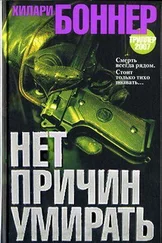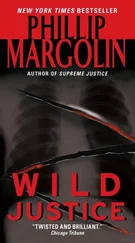The van’s driver had been taken in for questioning. It turned out that he was a minor villain called Colin Ferris who ran a scrapyard in the aptly named Gravesend and had been suspected in the past of dealing with hot vehicles.
Meanwhile further checks were run on the Transit. It turned out to have been registered to Shifter Brown. Under intense pressure, including threats to have his business closed down straight away, Ferris admitted that Shifter had brought him the vehicle and had paid him to destroy it. He was supposed to have crushed it in his crusher. But he hadn’t done so. ‘It was a good set of wheels and I needed a van, you see,’ he explained. ‘Shifter’d put a nearly new engine in it, hadn’t he? But it didn’t look much and Transits like that one are all over this manor. So I figured if I changed the colour and the reg I’d get away with it.’
Ferris was not the brightest of characters, evidently. And if he had ever known or suspected what Shifter had used the van for and why he needed it destroyed he denied it hotly.
Shifter Brown was rearrested at once. This time there was hard evidence against him. By the time the van was discovered in the dubious care of Colin Ferris there had been very little forensic evidence left — but just enough in an age when the science has become so exact that DNA can be extracted from the moisture left behind by breath on glass. Small spots of dried blood found on the floor and sides of the vehicle’s rear compartment matched O’Donnell’s.
Shifter capitulated. He was an old-fashioned villain. He didn’t think he stood a hope in hell of bucking that evidence. He didn’t have a legal dream team behind him, either, as the man he had killed had always done. And he believed a court would go easier on him if he confessed and pleaded guilty. So Shifter was co-operative. He knew when he was beaten. Shifter was into damage limitation, only he didn’t call it that.
Todd Mallett did the interrogation himself. The detective superintendent went back a long way on this case and still he didn’t reckon the investigations had got anywhere near to the bottom of it. He wanted to be hands-on.
Although Shifter would not say who had hired him to kill Jimbo, he was quite happy to reveal that it was indeed someone who wanted revenge for the death and degradation of Angela Phillips. Shifter always liked to appear justified in his actions. However, there were a number of points which continued to puzzle Mallett. ‘Why did you use your own van, Shifter?’ the detective asked.
‘Well, you never know quite what’s best to do in a situation like this, you see, Mr Mallett,’ Shifter began to explain, frowning in concentration. He sounded as if he were giving the policeman a lesson in criminology. ‘I had to take Jimbo right back to Dartmoor where Angela Phillips was found, that was part of the deal. And I had to take him alive and do him there. On the spot like, buried, more or less the same way the girl was. Now — if I’d nicked a motor I could easily have got stopped on the way, couldn’t I? So I figured that it would be safer to use my own wheels. The Transit had seen better days anyway. I reckoned if I wrecked it I was being paid well enough to buy myself something better. That toe-rag Ferris, though, he landed me right in it, didn’t he? He gets paid to make a motor disappear and then he gets greedy. Thinks he’ll take his bung and keep the van. I’d like five minutes with him, I’ll tell you that for nothing, Mr Mallett...’
‘I’m sure you would, Shifter, but I think you may have a long wait,’ said Todd wryly.
‘I know that, Mr Mallett,’ replied Shifter.
Todd had one final try at extracting the information he really wanted. ‘And you also know how much it would help if you told us who hired you, don’t you, Shifter? You could get a lot less time.’
Shifter nodded. He knew all right. But he wasn’t budging. And frankly, neither had the detective superintendent expected him to. ‘I don’t grass, Mr Mallett,’ said Shifter flatly.
Joanna phoned Fielding on his mobile to talk again about who might have been behind the contract. That was her excuse, anyway. She didn’t like admitting to herself how much she liked to hear his voice. Even when he sounded old and tired, and whined about his pension, it was as if someone else were speaking. Every time she saw him, every time she spoke to him, she could only remember the way he had been before. That was how she thought of him and that was how she still saw him.
He told her he would be in London for a couple of days later that week. ‘Fancy a spot of lunch?’ he asked.
Joanna took a moment or two to answer. She did fancy lunching with him. There was no doubt about that. However, it was against her better judgement that she finally heard herself agreeing to meet him in the same Italian restaurant, tucked away just off the Strand, where they had eaten together many times twenty years previously.
She was surprised he even knew it was still there. She did, of course, and invariably felt a twinge of nostalgia every time she walked past it.
‘Well, we both know where it is, don’t we,’ he remarked casually.
And she agreed with that too, as if she believed it really was his only reason for choosing the place.
He was already there, sitting at a table for two in the far corner, when she arrived. She noticed that he no longer looked crumpled as he had done on the occasions she had seen him in Devon. Obliquely, she wondered if he kept his best clothes for London nowadays. Or maybe for her. No, she was flattering herself. But certainly he was every bit as smart as she remembered him from the old days, dressed in a fashionable dark-beige linen jacket, cream shirt and a brown and cream striped silk tie. His eyes still held that disappointed look she had become so aware of, but he no longer seemed tired and world-weary. He stood up to greet her. He was a funny mix. He could be so well mannered and charming, and he could be such a pig.
There was a bottle of white wine on the table before him and she saw that he had already drunk about a third of it.
Without asking first, he poured a glass for her as soon as she sat down.
The mineral water culture would never be for Mike Fielding. She hardly knew anybody any more who bought wine by the bottle at lunchtime, she realised.
They made small talk for a few minutes.
‘How’s it going with the rubber heel brigade?’ she asked.
‘Looks like I’ll be exonerated. They can’t prove a thing and they know it,’ he said. ‘The muck’s stuck, of course, like it always does.’
She nodded and took a deep draught of the wine. She must have become as brainwashed as all the others by the new puritanical age, she realised suddenly. She had almost forgotten how good a chilled glass of wine tasted in the middle of the day. And this was very nice wine indeed, at the perfect temperature. She didn’t know much about Italian wine, but she did know that Mike always had bought better wine than he could afford. Mind you, the rate at which he was drinking it you wondered if it made much difference, she thought, noticing that he had drained his glass again already.
‘They’ve put me out to grass, Jo,’ he told her abruptly. ‘I’ve been appointed the Devon and Cornwall Constabulary’s Best Value Manager.’
‘What the hell’s that?’
‘Well may you ask! Officially I’m in charge of ensuring all our resources are managed properly; it’s a legal requirement now for every force in the country. Unofficially I’m being kept out of trouble, aren’t I? No more proper policing for me. Instead, the backwater of admin. I’m not even allowed to remain in a proper police station. I’ve been transferred to HQ at Middlemoor. My life is to be a merry round of seminars, working parties, and God knows what else. I’m in town for meetings at the Yard of the Met National Committee and, to tell the truth, I don’t even really understand what we’re supposed to be doing. I told you I’d be a paper shuffler from now on, didn’t I?’
Читать дальше












